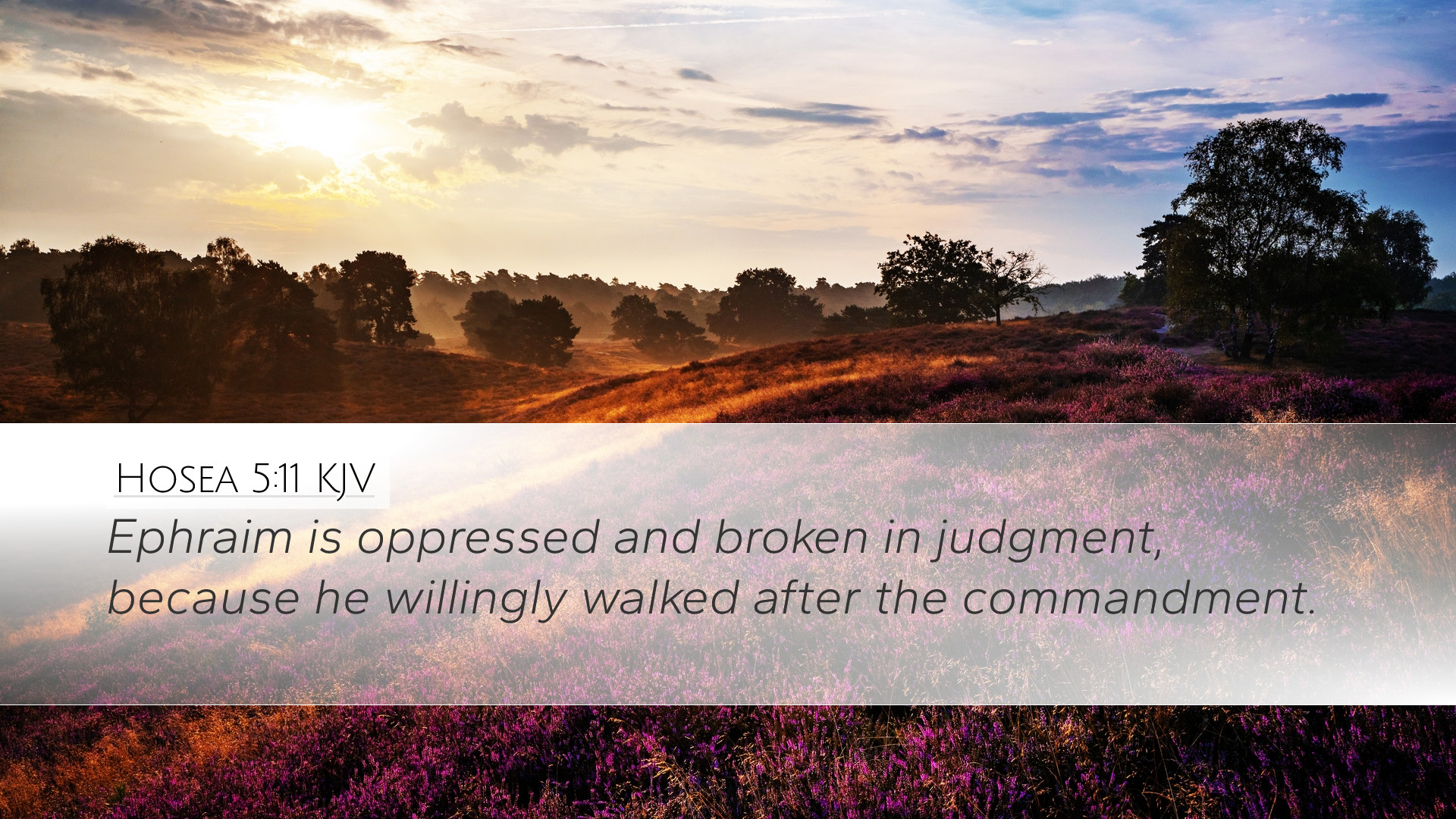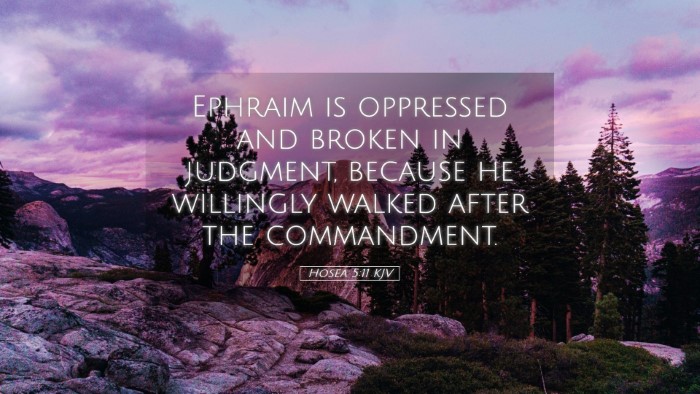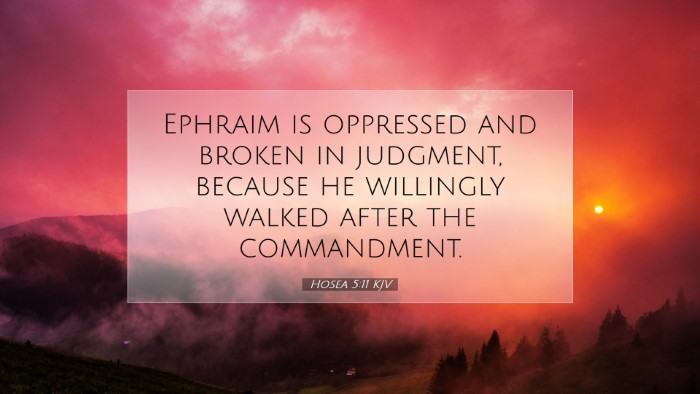Old Testament
Genesis Exodus Leviticus Numbers Deuteronomy Joshua Judges Ruth 1 Samuel 2 Samuel 1 Kings 2 Kings 1 Chronicles 2 Chronicles Ezra Nehemiah Esther Job Psalms Proverbs Ecclesiastes Song of Solomon Isaiah Jeremiah Lamentations Ezekiel Daniel Hosea Joel Amos Obadiah Jonah Micah Nahum Habakkuk Zephaniah Haggai Zechariah MalachiHosea 5:11
Hosea 5:11 KJV
Ephraim is oppressed and broken in judgment, because he willingly walked after the commandment.
Hosea 5:11 Bible Commentary
Bible Commentary on Hosea 5:11
Hosea 5:11 states, "Ephraim is oppressed and broken in judgment, because he willingly walked after the commandment." This verse presents a profound insight into the spiritual and societal state of Israel, particularly the tribe of Ephraim, signifying the consequences of their persistent rebellion against God's covenant.
Contextual Overview
In order to fully appreciate the implications of Hosea 5:11, it is essential to understand the broader historical and theological context in which Hosea prophesied. Israel, having turned away from God, found itself in a position of moral decay and social injustice. The prophet addresses the impending judgment that results from their disobedience.
Insights from Commentaries
Matthew Henry's Commentary
Matthew Henry emphasizes the nature of Ephraim's sins as “pride, luxury, and idolatry,” which had led to their oppression. He notes that their self-reliance and adherence to human commandments rather than divine law resulted in “broken judgment.” Henry elaborates that Ephraim's willful disobedience signifies a blatant disregard for God’s commandments, leading to severe consequences not only spiritually but also in their societal structures. He underscores that the “oppression” refers not only to external affliction but also to internal strife caused by their spiritual exile from God.
Albert Barnes' Notes on the Bible
Albert Barnes interprets the "oppression" mentioned in this verse as a direct result of the choices made by the kingdom of Israel. He observes that the divine judgment manifested in loss of sovereignty and eventual captivity stems from a systematic neglect of God's instructions. Barnes highlights that Ephraim’s “broken in judgment” reflects both the failure of leadership and the moral degradation of the people. He urges that this serves as a poignant reminder that abandoning divine guidance leads to community collapse and oppression.
Adam Clarke’s Commentary
Adam Clarke notes the dual nature of "walking after the commandment” as both a literal adherence to laws instituted by men and a symbolic reference to their departure from God's law. He argues that this willful pursuit of human command exaltation over divine dictates results in their oppression. Clarke explains that Ephraim's lifestyle had become characterized by superficial obedience to man-made laws while completely disregarding God's overarching commandments. This contrast illustrates the futility of relying on human wisdom in spiritual matters.
Theological Implications
The assessment that Ephraim is “oppressed and broken” suggests both a physical and spiritual state. Theologically, the consequences of sin outlined in this verse extend beyond mere punishment; they offer a profound reflection on the nature of judgment. As believers, this verse serves to remind us that distancing ourselves from God’s commandments can lead to multifaceted breakdowns in our lives, churches, and nations.
Spiritual Applications
- Self-Reflection: Individuals should examine their lives for areas where they may be following the “commandment” of society at the expense of divine commandments.
- Leadership Responsibility: Leaders must enact justice and righteousness, ensuring their decisions align with biblical principles to avoid collective calamity.
- Community Vigilance: Congregations need to remain vigilant against the subtle influences of cultural norms that contradict God’s word.
- Hope for Restoration: Though the verse speaks of judgment, it also opens the door for restoration, emphasizing the importance of repentance and a return to God’s ways.
Conclusion
The warnings found in Hosea 5:11 resonate deeply across ages and cultures, serving as a call to obedience among God’s people. By synthesizing insights from Matthew Henry, Albert Barnes, and Adam Clarke, we draw a comprehensive understanding of the dire consequences of straying from God's directives. For pastors, students, and scholars alike, this commentary illustrates the enduring need for fidelity to God’s commandments amid a culture that often embraces alternatives, guiding future generations toward true spiritual freedom and communal integrity.


